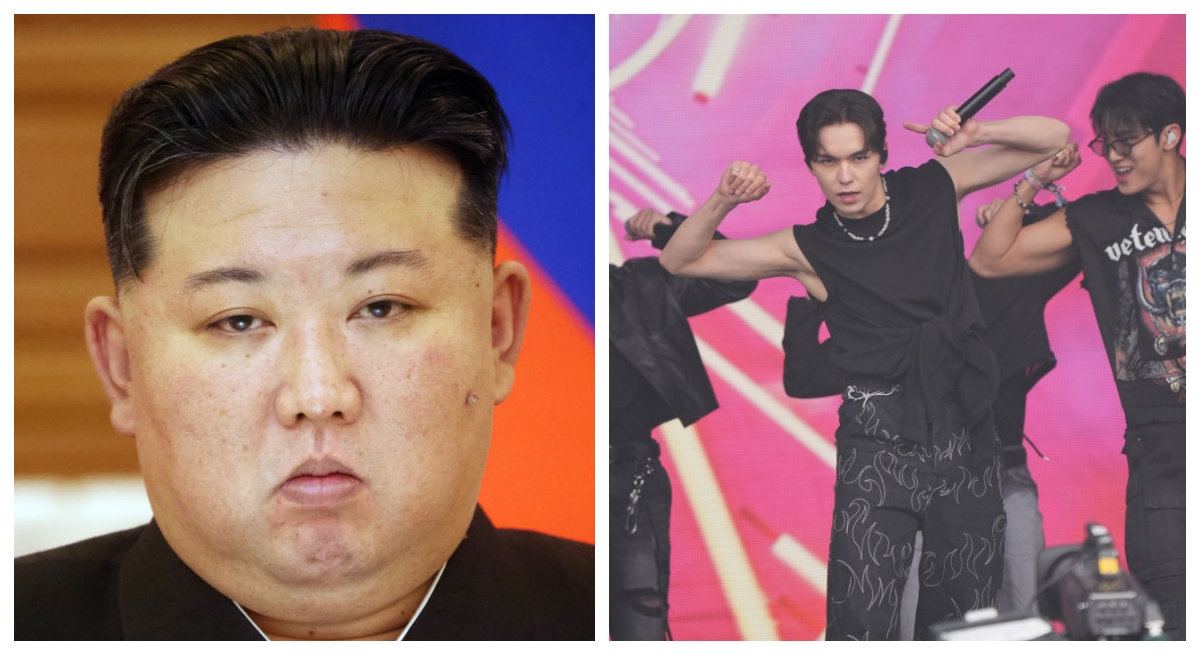North Korean K-Pop History and Origins
North korean kpop – The emergence of North Korean K-Pop, a distinct musical genre originating from the isolated nation, can be traced back to the late 2000s. Its development was driven by a combination of internal factors and external influences.
North Korean K-pop, a genre gaining recognition for its unique blend of traditional Korean melodies and modern pop elements, has captivated audiences worldwide. Its influence extends beyond borders, inspiring artists like Shaquille Leonard , whose music seamlessly merges hip-hop with North Korean folk rhythms.
This fusion highlights the transformative power of K-pop, bridging cultures and fostering a global appreciation for North Korean music.
Internally, the North Korean government recognized the potential of popular music as a tool for cultural diplomacy and national pride. They established music schools and training programs to cultivate talented performers and musicians.
North Korean K-pop’s recent surge in popularity has captivated audiences worldwide. Amidst the rising stars of this genre, the story of Pittsburgh Steelers wide receiver Brandon Aiyuk, whose athletic prowess on the field mirrors the dynamic energy of North Korean K-pop, has garnered much attention.
Just as Aiyuk’s lightning-fast speed and agility electrify the gridiron, North Korean K-pop’s infectious rhythms and captivating performances continue to enthrall fans, leaving an indelible mark on the global entertainment landscape.
Influences on North Korean K-Pop
North Korean K-Pop draws inspiration from various sources, including traditional Korean folk music, South Korean K-Pop, and Western pop music. It incorporates elements such as lively rhythms, catchy melodies, and synchronized dance routines.
Unique Characteristics of North Korean K-Pop
North Korean K-Pop is characterized by its patriotic lyrics, which often extol the virtues of the nation and its leaders. The music videos typically feature elaborate sets, colorful costumes, and a strong emphasis on military imagery.
Comparison to South Korean K-Pop

North and South Korean K-Pop, while sharing the same genre label, exhibit distinct characteristics that reflect the political and cultural differences between the two nations. This comparison explores the similarities and differences between the two, examining music, lyrics, production, and performance.
Music
- North Korean K-Pop: Patriotic and revolutionary themes, often with a focus on praising the leadership and promoting national unity.
- South Korean K-Pop: Diverse range of themes, including love, relationships, social issues, and personal experiences.
Lyrics
- North Korean K-Pop: Emphasizes political ideology, loyalty to the state, and the glorification of the leadership.
- South Korean K-Pop: Explores a wide range of topics, including personal emotions, social commentary, and cultural identity.
Production
- North Korean K-Pop: Limited access to advanced recording technology and musical resources, resulting in a more traditional and less polished sound.
- South Korean K-Pop: High production values, utilizing cutting-edge technology and collaboration with international producers.
Performance, North korean kpop
- North Korean K-Pop: Conservative and synchronized, with a focus on precision and discipline.
- South Korean K-Pop: Dynamic and energetic, with emphasis on individual expression and stage presence.
Cultural and Political Implications: North Korean Kpop

North Korean K-Pop, though nascent, carries significant cultural and political implications. It shapes North Korean society, influences international perceptions, and holds potential for bridging cultural divides and fostering dialogue.
Role in Shaping North Korean Society
North Korean K-Pop has emerged as a platform for youth expression and cultural exchange. It allows young North Koreans to connect with global trends and challenge societal norms. The genre’s upbeat melodies and relatable lyrics resonate with their aspirations, fostering a sense of community and belonging.
Impact on International Perceptions
North Korean K-Pop has softened the country’s image abroad. By showcasing talented North Korean artists and their artistry, it challenges stereotypes and humanizes the nation. It fosters a more nuanced understanding of North Korea and its people, promoting empathy and dialogue.
Potential for Bridging Cultural Divides
North Korean K-Pop can bridge cultural divides by creating a shared space for artistic expression. It allows North and South Koreans to connect through a common passion, transcending political boundaries. By promoting cultural exchange and dialogue, it can contribute to reconciliation and peaceful coexistence.